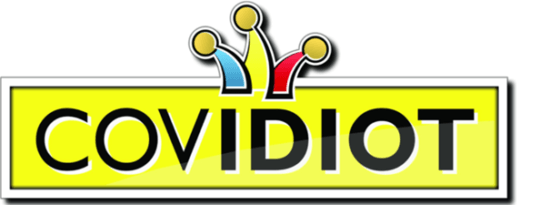
Controversial trade mark applications – Trendy words versus morality
The pandemic has brought us many things including interesting new word creations. Have you heard of “Blursday”, “Ronavation” or “Spendamic”? No? You can look them up on the “Urban Dictionary”. Or you can learn about these and many more by reading the recent EUIPO decision “Matthias Zirnsack vs. EUIPO”, Case R-260/2021-G. In this decision, the EUIPO First Board of Appeal dealt with a trade mark application for the below sign which includes the word “COVIDIOT”. The Board assessed public policy reasons and principles of morality leading to core questions of the applicability and scope of the Charter of Fundamental Rights of the European Union and the European Convention of Human Rights. In the end, the Board noted a “degree of legal complexity of the case” and referred it to the Grand Board for decision.

The Background: Refusal of EUTM application “COVIDIOT”
A trade mark application to register the word/device “COVIDIOT” was submitted to cover goods in classes 6 (metal clips), 9 (computer gaming software and mobile apps), and 28 (board games and toys). The application was refused for all goods concerned pursuant to Art. 7(1)(f) in conjunction with Art. 7(2) EUTMR: Trade marks which are contrary to public policy or to accepted principles of morality shall not be registered. The applicant appealed the decision.
The Issue: Freedom of expression in trade mark law
The Board applied Art. 7(1)(f) EUTMR and concluded that being named a “covidiot” – be it in the course of a board game or not – refers to a person or group of people in a derogatory manner in connection with ‘COVID’. Additionally, the name of the virus could be trivialised when being used as the name of a game which would again be contrary to accepted principles of morality. Having come to this conclusion, the Board then dealt with the right of freedom of expression (as laid down in Article 11 of the Charter of Fundamental Rights of the European Union and Article 10 of the European Convention of Human Rights). Do human rights play a role in trademark law? Yes, they do.
The Court of Justice of the European Union has recently answered some important questions in relation to freedom of (in this case commercial) expression (see CJEU, decision of 27 February 2020, C-240/18 P, EU:C:2020:118 – Constantin Film GmbH v. EUIPO, or better known as the “Fack Ju Göhte” case). In this decision the Court of Justice of the European Union made clear that freedom of expression applies in the field of trade mark law. The First Board of Appeal thoroughly considers the standards as laid down in “Fack Ju Göhte”. But to what end does freedom of expression apply? Where is its limit? What are the principles of morality? Can a trendy word used by so many violate the principles of morality? In every circumstance? In the end, the Board also questions whether the word “covidiot” may become too popular rendering the term devoid of distinctiveness.
The INTA: Proposal of a new test to determine morality
In an amicus brief the INTA (International Trademark Association) proposed a new test to determine the principles of morality under Art. 7(1)(f) EUTMR: This “ground of refusal/invalidity should apply only if the majority of the relevant public perceives the content of a mark as violating the accepted principles of morality”.
Review: The stakes are high
Reading this decision and the “Fack Ju Göhte” case it is evident that nothing is clear in the field of morality and trade marks. The CJEU indicates that an application should only be refused on the grounds of Art. 7(1)(f) EUTMR in exceptional cases. It remains to be seen whether the Grand Board will pick up on this. In one aspect the author agrees with the INTA: A trade mark application should not be refused lightly due to tentative concerns one may have with terms that are not fully in line with public standards. On the issue of trade mark law and morality you can see more on BrandWrites here.








